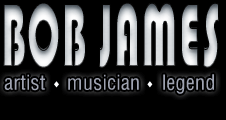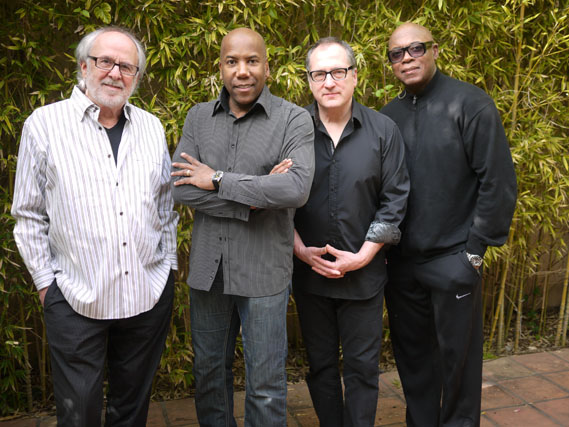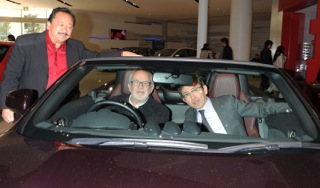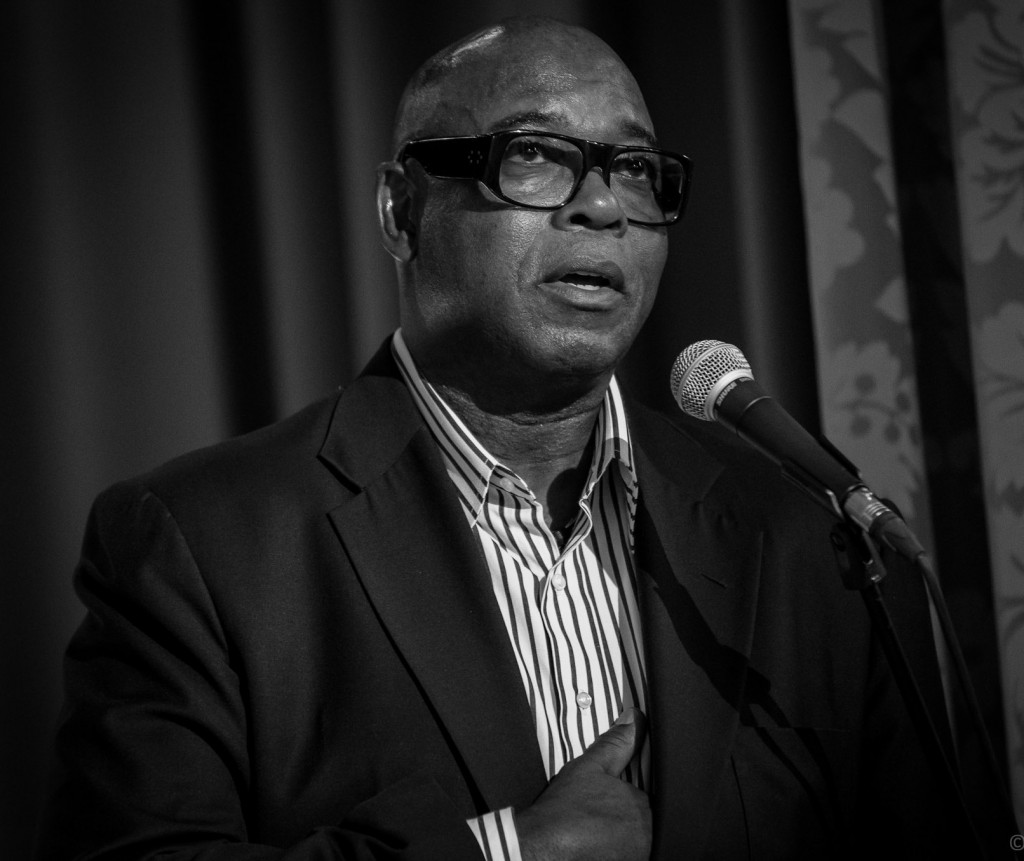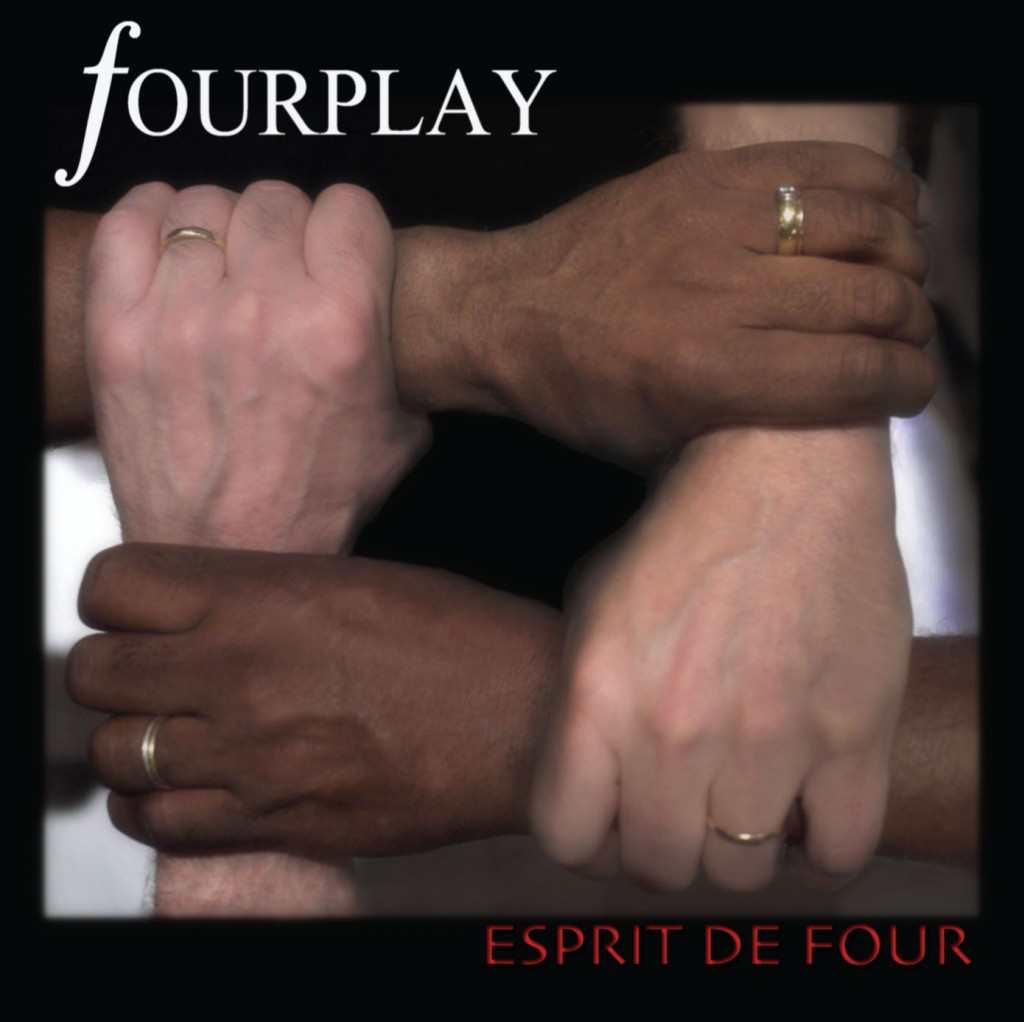
Browsing Category News
Marshall is Music: Jazz Legend returns home for 3rd annual jazz fest
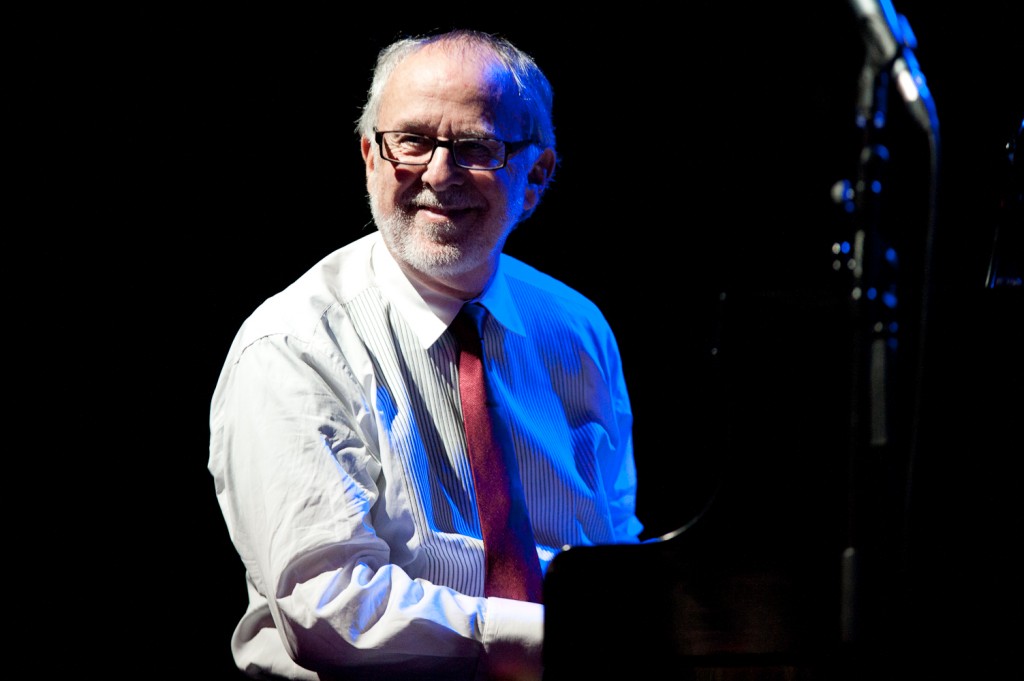 Marshall-born jazz musician Bob James has been busy since he last came to town a year ago for the second annual Jazz Festival that bears his name.
Marshall-born jazz musician Bob James has been busy since he last came to town a year ago for the second annual Jazz Festival that bears his name.
“It’s been a lot of touring,” James said, explaining most of the touring he has done is with his jazz group Fourplay. “These days, in our business, live performances have become more and more important. We don’t sell as many CDs as we use to, people get their music in all kinds of different ways … It’s always exciting for me to play in front of a live audience and I’m happy about that.”
One of James’ most recent projects is an album with saxophonist David Sanborn, who grew up in St. Louis. James and Sanborn collaborated in the 1980s with a record called “Double Vision,” which James said was very successful.
“But we never followed up on it,” James said. “Finally, late last year, we decided that it was time for us to get back in studio to try and do something new.”
That record, titled “Quartette Humaine,” will offer listeners a smooth look back at the simpler music of early jazz, but with original music composed in part by James.
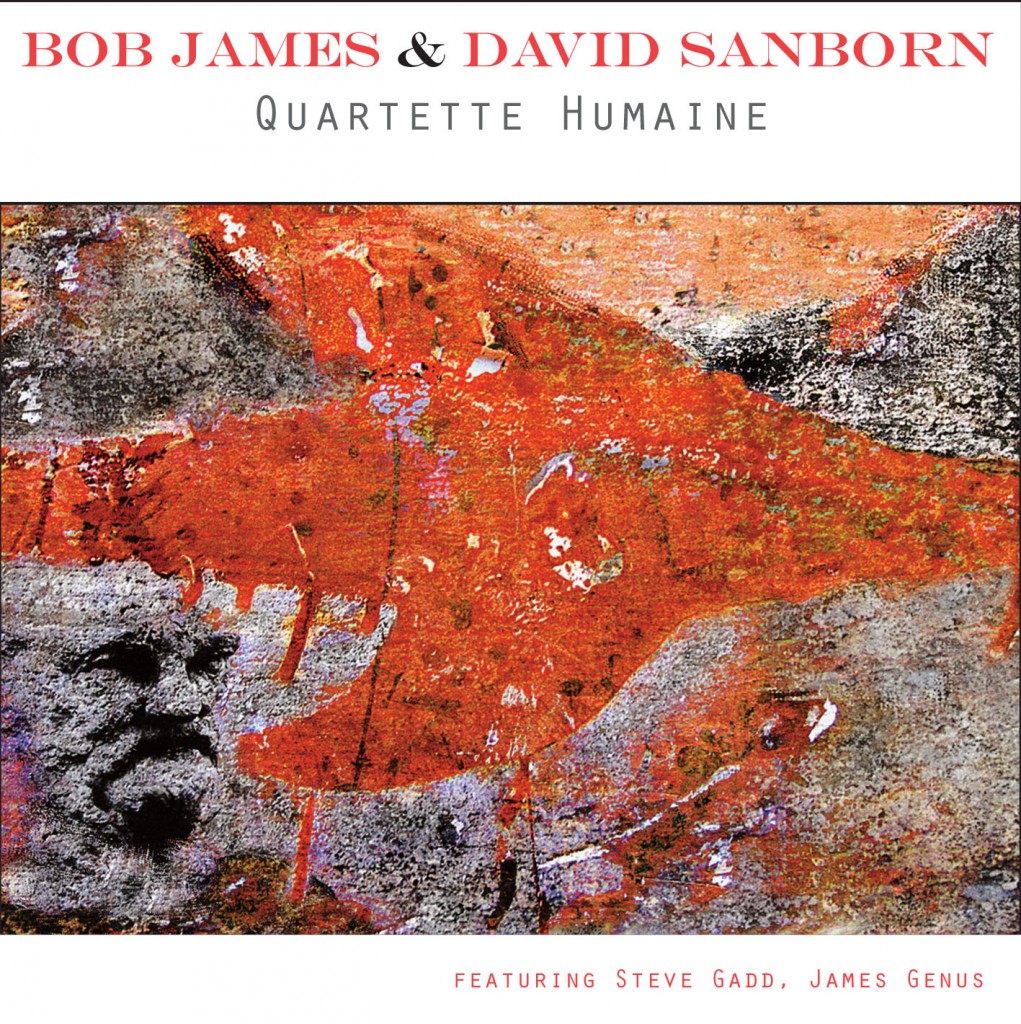 “We chose the very simple jazz instrumentation of his (Sanborn’s) alto sax, piano, acoustic bass and drums,” James said of the CD, which will be released May 21.
“We chose the very simple jazz instrumentation of his (Sanborn’s) alto sax, piano, acoustic bass and drums,” James said of the CD, which will be released May 21.
James, however, said when he comes to perform in Marshall on May 18, he will be going with the flow of his hosts.
“It won’t be my performance as such,” James said. “I’m bringing a few of my classic arrangements that I will be doing with the local musicians.”
James said he will be excited to return to his hometown after a busy year in which he has toured the United States and went to countries as far as Japan.
It was in Japan where, earlier this year, James was honored at the Jazz Japan Festival for his help in the relief efforts that helped the country cope with the tsunami of 2011.
“I learned about the tsunami of March 2011, but I also learned during that time that many artists who were booked to go to Japan to perform were cancelling out because of fear,” James said. “For whatever reason, I didn’t feel that same fear and I sent the word out that I wanted to go there and offer my support. I had the opportunity in September of that year to go to a small jazz festival that was just starting out, maybe even similar to the one in Marshall. As it turns out, I was the only American that went over there.”
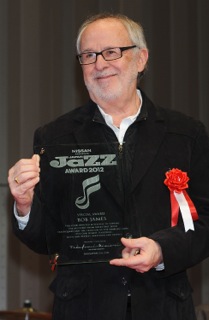 James said ever since, the Japanese people have given him an immense amount of support for his music.
James said ever since, the Japanese people have given him an immense amount of support for his music.
“Japanese people really, really appreciate when a foreigner cares a lot about their people and their culture,” James said. “They have given back to me in support far more than I was able to give to them.”
He said through touring the country and the world, he has realized music has the effect of bringing people together.
“I’m still amazed at the power that music can have,” James said. “Our instrumental music has a way of communicating that is in some ways more powerful than words because it’s just emotion. It’s not attempting to put feelings into words. It’s just expressing something that comes from maybe a different place in your mind. I feel so fortunate to have learned my craft in a way that has given me an opportunity to go to all these different places in the world, and hopefully bring inspiration to people through this abstract music.”
In Marshall, James is bringing more than his music. Recently, James began supporting a music scholarship that will be awarded each year to a music student in Marshall.
He said it was important to ensure those who are interested in music realize there are people who are behind them and support them in their dreams.
“Of course the most important thing is the legacy that we leave behind, the encouraging of young people to pursue an education, to get better with their music,” James said. “It’s the only way that our music will continue to survive. If we don’t do our part to encourage that, we are not doing our job.”
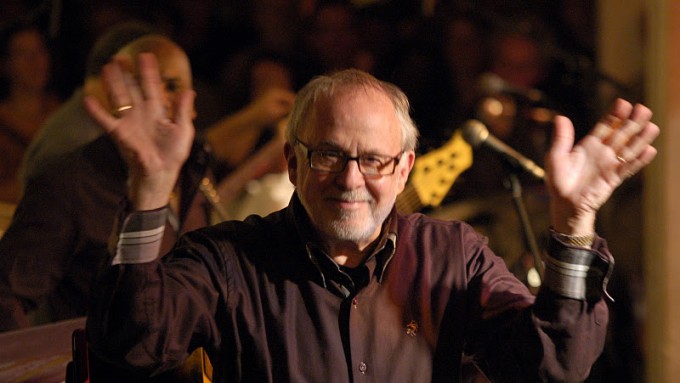 James also had words of encouragement, and caution, for those who wish to work in the music business.
James also had words of encouragement, and caution, for those who wish to work in the music business.
“There are no shortcuts, really,” James said. “The harder you work the better you are going to be. But also, just enjoy that process at whatever level, even if you are playing in front of just your family, or if you are just performing in front of 10 people, give it your best and learn from that, how you fit into this world of music.”
He said people shouldn’t think of going into music for fame or money.
“There are only certain people that are destined to have larger fame, but that doesn’t mean that you can’t be making meaningful contributions to music even at that smaller level,” James said.
James said he is looking forward this weekend to catch up with old friends, including guest musician Mike Henderson.
“A lot of my memories from then have dimmed,” James said. “One of the things I look forward to when I go back to Marshall is refreshing that memory by meeting people that I knew back in those days.”
James said he intended to be at Marshall’s jazz festival for many years to come.
“I wish this festival’s continued success,” James said. “I hope I will still be coming down for it’s 10th anniversary and it’s 15th anniversary and on and on for as long as possible.”
Related stories:
Marshall is music: Homecoming: ’The Blues Professor’ to be featured at Bob James Jazz Festival
www.marshallnews.com/story/1965486.html
Marshall is music: Bob James to lead second annual jazz festival in Marshall
www.marshallnews.com/story/1847742.html
Bob James Jazz Festival: Jazz makes a comeback in Marshall
www.marshallnews.com/story/1731170.html
Online:
www.bobjamesjazzfest.org
www.facebook.com/BobJamesJazzFestival
Bob James Jazz Festival
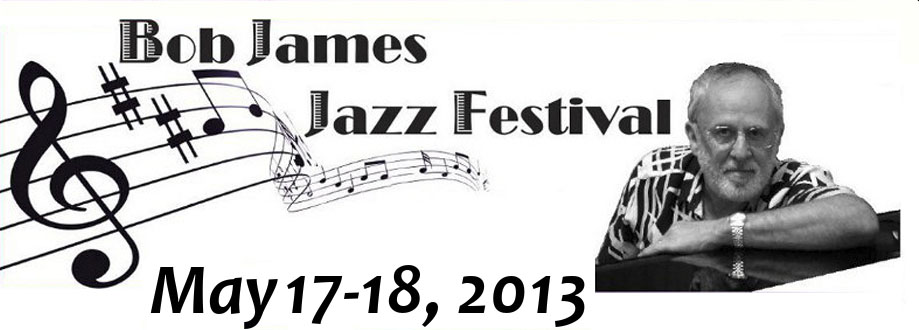 Come experience the 2013 Bob James Jazz Festival in Marshall, MO!
Come experience the 2013 Bob James Jazz Festival in Marshall, MO!
FESTIVAL INFORMATION
TICKETS
This year’s headliners will be the D.J. Sweeney Quartet, one of the top jazz acts in the Kansas City region. Enjoy a special set with Bob James collaborating with the quartet on stag!.
Schedule
5 p.m. — Gates Open and Food Served (BBQ Sandwiches served by Kiwanis Club)
6:30 p.m. — Clinic All-Stars
7:15 p.m. — Liberty Jazz Band
8 p.m. — Intermission with Presentations
8:30 p.m. — D.J. Sweeney Quartet
9:15 p.m. — Bob James set with D.J. Sweeney Quartet
10 p.m. — Meet & Greet Autograph Session
10:30 p.m. — Events End
Bob James & Dave Sanborn Introduce the New Album, ‘Quartette Humaine’
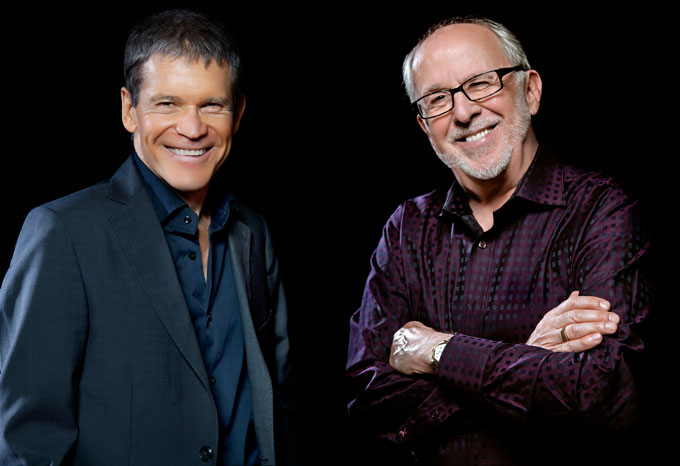 Bob James & David Sanborn on Quartette Humaine:
Bob James & David Sanborn on Quartette Humaine:
The first creative collaboration between keyboardist-composer-arranger Bob James and alto saxophonist David Sanborn, a quarter century ago, was the million-selling Grammy-winning album Double Vision. Over the ensuing years, the mega-stars not infrequently discussed the notion of a followup. But only now, with the release of Quartette Humaine (their debut release on Sony Classical’s just-reborn OKeh imprint), has that aspiration reached fruition.
“David and I realized long ago that Double Vision had become more successful than we originally imagined it could be,” James says. “Ironically, although we’ve met in the studio, doing other people’s projects, we’ve never toured, or performed together live as a band. The exception was a midnight jam session at the Tokyo Jazz Festival a few years ago. We played just a couple of tunes, but it engendered the feeling that a reunion was way overdue.”
One of those tunes was “Maputo,” the most famous track from Double Vision. “We’d both done it in various iterations with our respective bands, but this was so much fun, so different from those treatments,” Sanborn states. “That was my impetus. I wanted to do something very different than Double Vision, that would be about us just playing.”
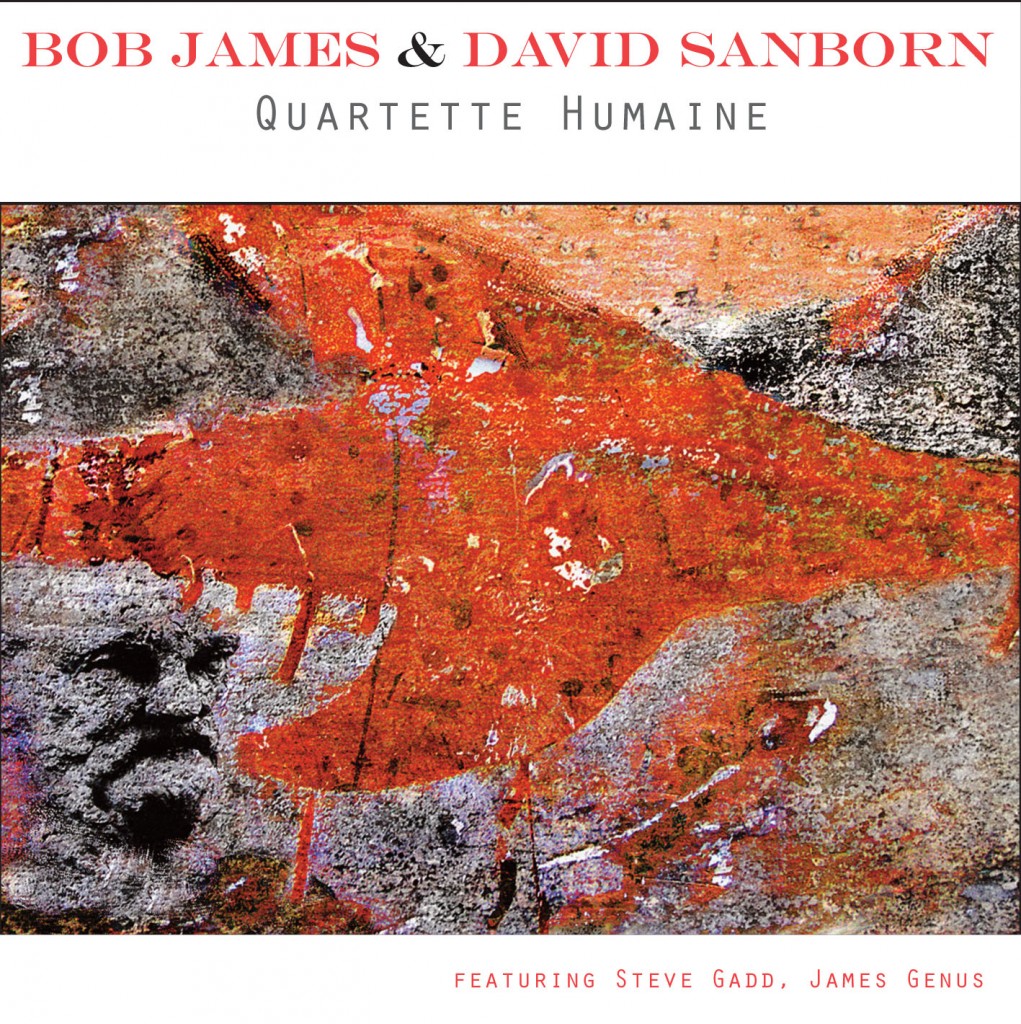 After several months of preparation and discussion, Sanborn and James recorded Quartette Humaine in mid-December (2012). On their second go-round, the old masters eschew the pop and R&B production values that mark large chunks of their respective discographies, and offer instead an all-acoustic quartet recital consisting of six new compositions by James, three pieces by Sanborn, and a James-arranged standard. Propelled by legendary drummer Steve Gadd and 21st century bass giant James Genus, the proceedings are reflective, swinging, chock-a-block with unfailingly melodic improvising and beautiful tonalities.
After several months of preparation and discussion, Sanborn and James recorded Quartette Humaine in mid-December (2012). On their second go-round, the old masters eschew the pop and R&B production values that mark large chunks of their respective discographies, and offer instead an all-acoustic quartet recital consisting of six new compositions by James, three pieces by Sanborn, and a James-arranged standard. Propelled by legendary drummer Steve Gadd and 21st century bass giant James Genus, the proceedings are reflective, swinging, chock-a-block with unfailingly melodic improvising and beautiful tonalities.
“We felt it’s far more exciting and adventurous to move forward,” James says. “Times have changed. The music business has changed. We have changed.”
“At this stage of my life, I wanted more than anything to play music that’s challenging and fun, outside the style we’ve been associated with,” Sanborn says. “For various reasons, a lot of my records only reflected one side of the many kinds of music I was doing.” Over the past decade, Sanborn adds, his records “reflect a side of my sensibility that I hadn’t been expressing as much, paying respects to guys like Hank Crawford and David ‘Fathead’ Newman, who inspired me to start when I was a teenager in St. Louis.”
Interestingly, James wasn’t fully sold on the notion of an all-acoustic environment for Quartette Humaine until the project was well underway. “I thought some of the songs might want to be produced, or have overdubs, or maybe strings, or other things associated with our earlier music,” he recalls. “But as it developed, the quartet vibe we created was so strong that it became more interesting to keep it that way.”
It’s a poignant coincidence that the recording sessions occurred a week after the death of the iconic pianist-composer Dave Brubeck, who the protagonists were thinking of as they gestated Quartette Humaine. “We talked about the interplay of Brubeck’s quartet with Paul Desmond,” Sanborn says. “Coming from that, I assumed we’d make a quartet date. I like being able to really hear all the individual instruments. We had this beautiful 9-foot grand piano, and you can hear its sound ring out. You get more sonic purity without all those other elements.”
Indeed, both the tunes and treatments channel Brubeck’s gift for creating communicative music from highbrow raw materials. “Dave has a similar capability to Paul Desmond—though in a different way—in that the lyric quality of the way they play takes it into an emotional-romantic concept rather than an intellectual one,” James says of Sanborn. “I felt—and I still do when I listen to the Brubeck quartet—that they were taking us on an adventure, and some of the adventure was challenging. Just when you thought you knew where you were going, they’d go somewhere different.”
That “edge of being in an unknown place” permeates “Mondo Rondo,” on which James signifies on Brubeck’s 9/8 classic “Blue Rondo A La Turk” by creating “a fast, virtuoso tune on which we take the listener through a bunch of odd time signatures where they may not always know where they are.” He adds, “Steve Gadd flowed through it so effortlessly that I got worried it was sounding too smooth.” Another new opus, “Better Not Go To College,” reimagines Brubeck’s classic “In Your Own Sweet Way” “in mood though not exactly in style,” and references Brubeck’s breakthrough album Jazz Goes To College, which James recalls hearing as a high school sophomore in Marshall, Missouri.
Sanborn’s ravishing tone comes to the fore on James’ arrangement of “Geste Humaine,” composed by the French songwriter-singer Alice Soyer. On the American Songbook classic “My Old Flame,” addressed in 12/8, the altoist soars soulfully on the cushion of James’ elegant voicings and written thematic counterpoint bassline. He uncorks an ascendent declamation on “Montezuma,” which James composed “very specifically” for his partner. “I thought about supporting Dave’s sound with a symphony orchestra,” James laughs, describing the latter piece. “There’s dramatic tension that resolves in a very major, majestic way, with Dave way up in his upper register. But we realized that interpreting it in the raw quartet mode was even more powerful.”
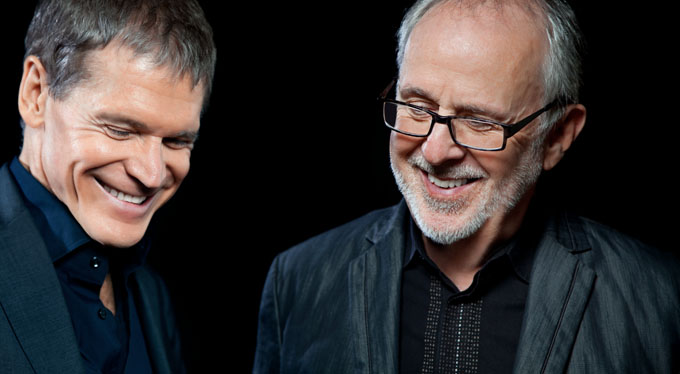 The alto master presents his gift for melodic invention on his three compositions, offering a new ballad, “Genevieve,” for his granddaughter, and revisiting two tunes that Gil Goldstein framed with elegant orchestrations on the 2004 classic, Closer—“Sofia,” a ballad for his wife, and “Another Time, Another Place,” dedicated to Herbie Hancock.
The alto master presents his gift for melodic invention on his three compositions, offering a new ballad, “Genevieve,” for his granddaughter, and revisiting two tunes that Gil Goldstein framed with elegant orchestrations on the 2004 classic, Closer—“Sofia,” a ballad for his wife, and “Another Time, Another Place,” dedicated to Herbie Hancock.
“It’s so much fun to do it this way,” Sanborn says. “I used to separate live playing from being in the studio, and got into a mindset of having to labor over a record and make it right. I want the studio to reflect that live experience—the fun of discovery, not knowing what’s going to happen until it happens.”
By following such in-the-moment dictates throughout Quartette Humaine, James and Sanborn have produced another masterpiece. As James sums up: “We seem to be reflecting back on what our lives have been, where our earlier projects have taken us. We tried to figure out the strengths we’ve learned by experience, and to bring them to this project where we celebrate that we’ve done so many things and that we’re still able to keep creating.”
Fourplay Hits Heavy Rotation on iTunes
Fourplay’s Sell Out Performances
Bob James is Honored for Japan Relief Efforts
Nissan Presents…
JAZZ JAPAN AWARDS
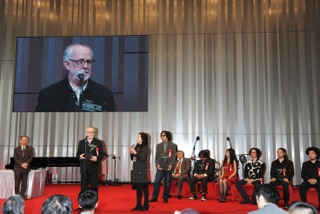 Special Award presented to BOB JAMES
Special Award presented to BOB JAMES
For his devoted activities to support the recovery from the Great East Japan Earthquake, and the creation of the Symbolic Song, “PUT OUR HEARTS TOGETHER”.
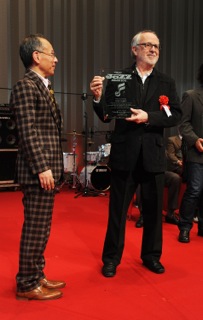 …with our deepest Gratitude and Respect.
…with our deepest Gratitude and Respect.
Takafumi Mimori
(President and Editor and Chief – Jazz Japan Co.)
Related show
The Blue Note Tokyo Presents Fourplay
Related show
Happy Birthday Harvey!
Harvey Mason to Miss Upcoming Tour
To all my friends and fans at the Blue Note Tokyo and in Jakarta,
On December 3rd I underwent reconstructive surgery on my right achilles tendon to repair a 21 year old injury. While I’m presently in rehab and cautiously getting around, my surgeon strongly advised against making this trip to Japan and Jakarta.
So it is with sadness that I will miss these performances with my Fourplay brothers. However, be assured Fourplay will maintain the high creative standards set over 20 years. The band has enlisted Clarence Penn to fill in, and I’m sure he will create a fresh excitement with the band on this tour.
I truly love Japan, the Blue Note Tokyo, and all you fans.
I will really miss you and being a part of this experience, but am encouraged by the fact that when fully recuperated, I’ll be better than ever.
Thanks again for your support, and I hope to see you later in the year.
With Love,
Harvey Mason
